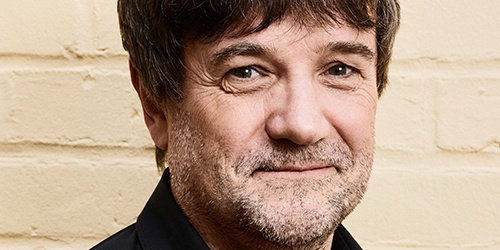Auntie Ernas last dance
Commercial Fiction, Fiction
What does coming home mean once you're in your fourties?
Markus was a very different person when he left more than twenty years ago. But he finds his childhood home unchanged when he moves back to the village where he grew up. His parents welcome him with their characteristic lack of composure: his mother is overjoyed, talkative and lively, while his father seems pale and almost translucent.
His mother’s best friend Klärchen has always lived with her old Auntie Erna in the semi-detached house next door. Markus used to play with Klärchen's daughter Sibille as a child, they even shared a memorable first kiss once. Now, though, Sibille rarely shows her face in the village, something her mother Klärchen complains about incessantly. Soon Klärchen and Markus’s mother hatch a plan. Surely, if something awful were to happen – something like, say, poor poor old Auntie Erna practically being at death’s doorstep – Sibille would need to come back?
Soon Sibille is taking the first train home to be with her mother in this fabricated difficult time. But when she works out the extent of their machinations, she is outraged. Markus, meanwhile, has something quite different on his mind. He is astonished to feel an interesting set of new emotions for his childhood friend.
- Reading Markus Orth's books is like listening to klezmer. His tone is musical: he alternates between major and minor key, inspiring first laughter and then tears
- Witty, wistful, and clever: an intense novel about middle age
What does coming home mean once you're in your fourties?
Markus was a very different person when he left more than twenty years ago. But he finds his childhood home unchanged when he moves back to the village where he grew up. His parents welcome him with their characteristic lack of composure: his mother is overjoyed, talkative and lively, while his father seems pale and almost translucent.
His mother’s best friend Klärchen has always lived with her old Auntie Erna in the semi-detached house next door. Markus used to play with Klärchen's daughter Sibille as a child, they even shared a memorable first kiss once. Now, though, Sibille rarely shows her face in the village, something her mother Klärchen complains about incessantly. Soon Klärchen and Markus’s mother hatch a plan. Surely, if something awful were to happen – something like, say, poor poor old Auntie Erna practically being at death’s doorstep – Sibille would need to come back?
Soon Sibille is taking the first train home to be with her mother in this fabricated difficult time. But when she works out the extent of their machinations, she is outraged. Markus, meanwhile, has something quite different on his mind. He is astonished to feel an interesting set of new emotions for his childhood friend.
- Reading Markus Orth's books is like listening to klezmer. His tone is musical: he alternates between major and minor key, inspiring first laughter and then tears
- Witty, wistful, and clever: an intense novel about middle age


